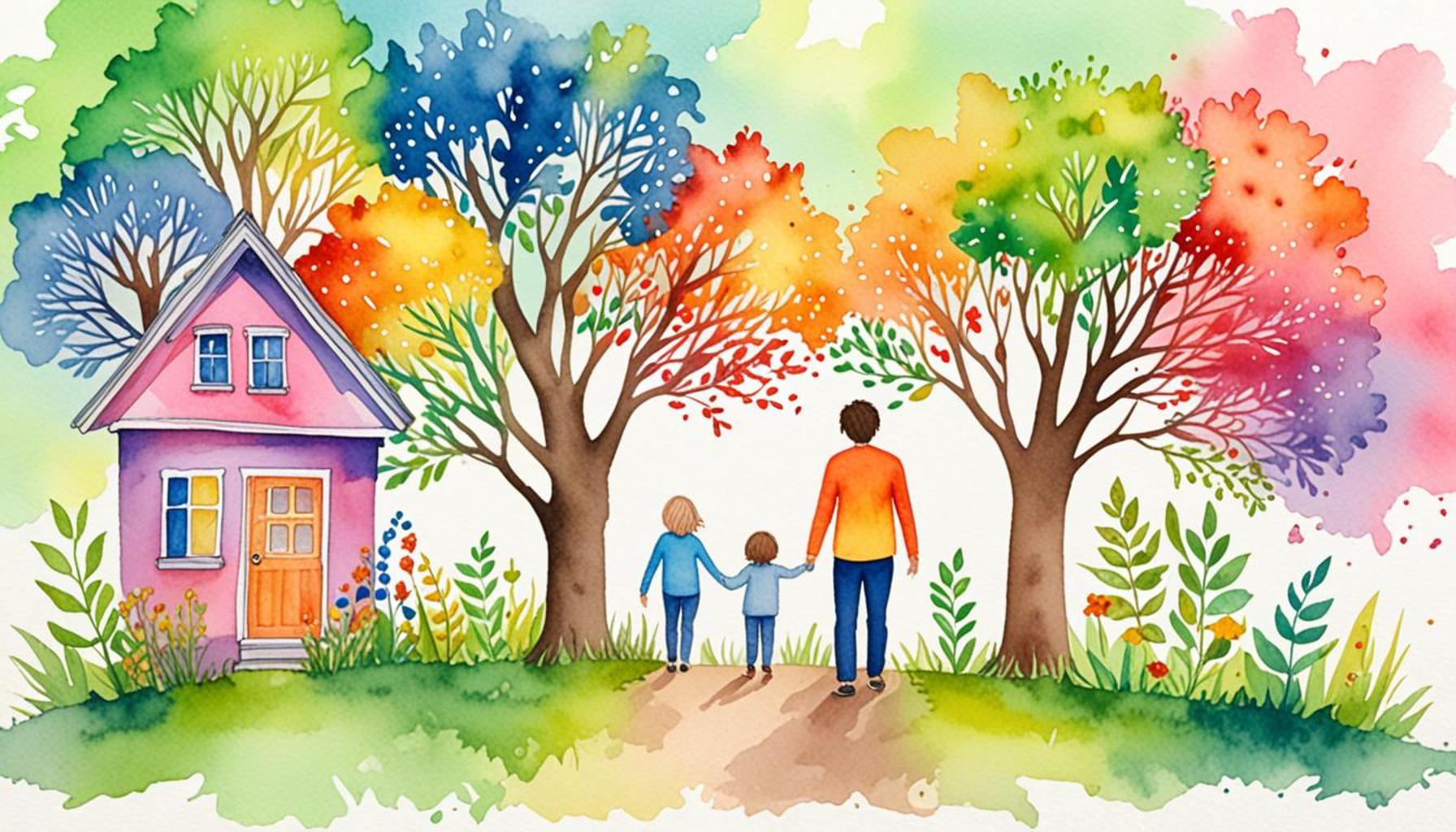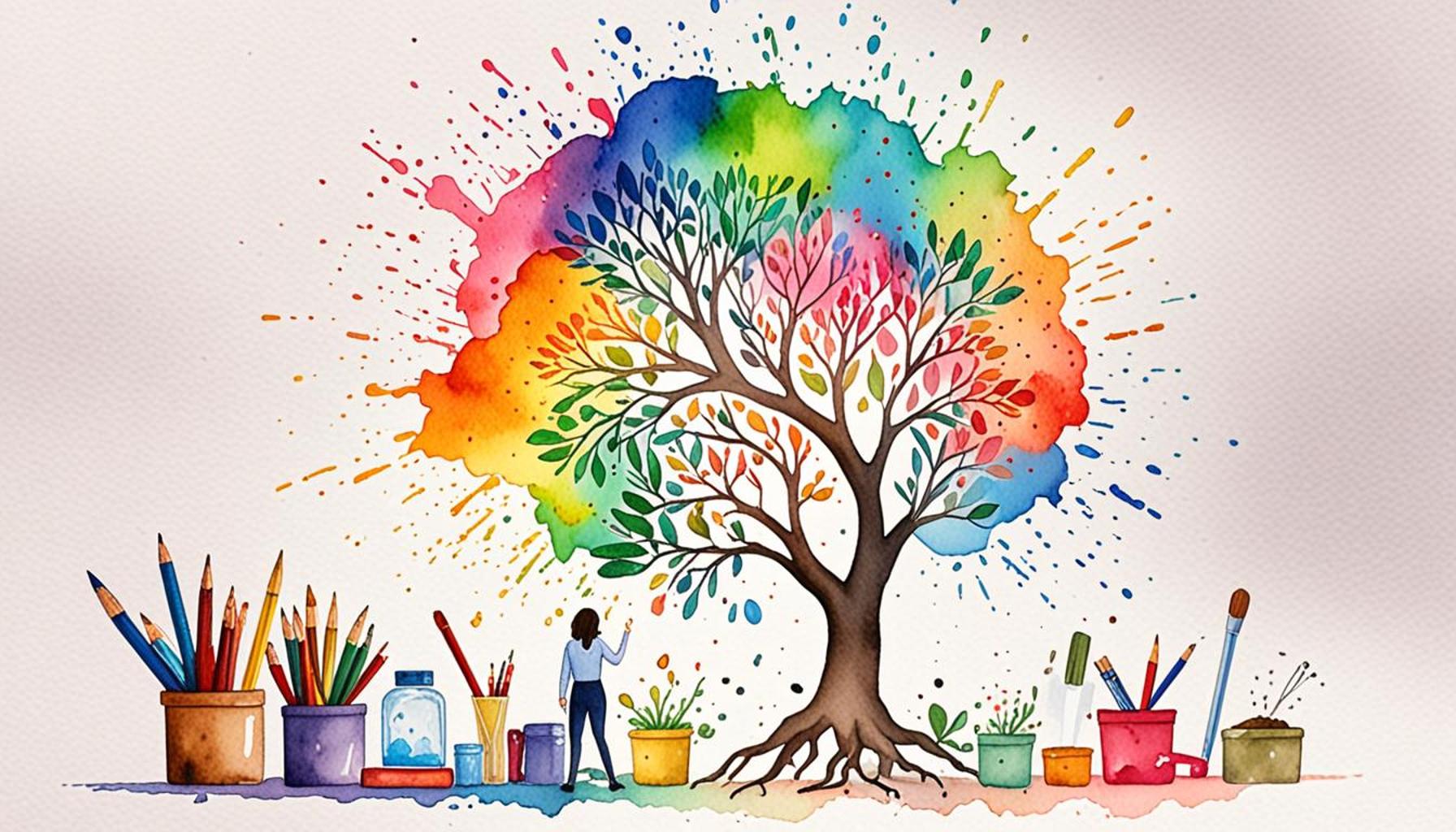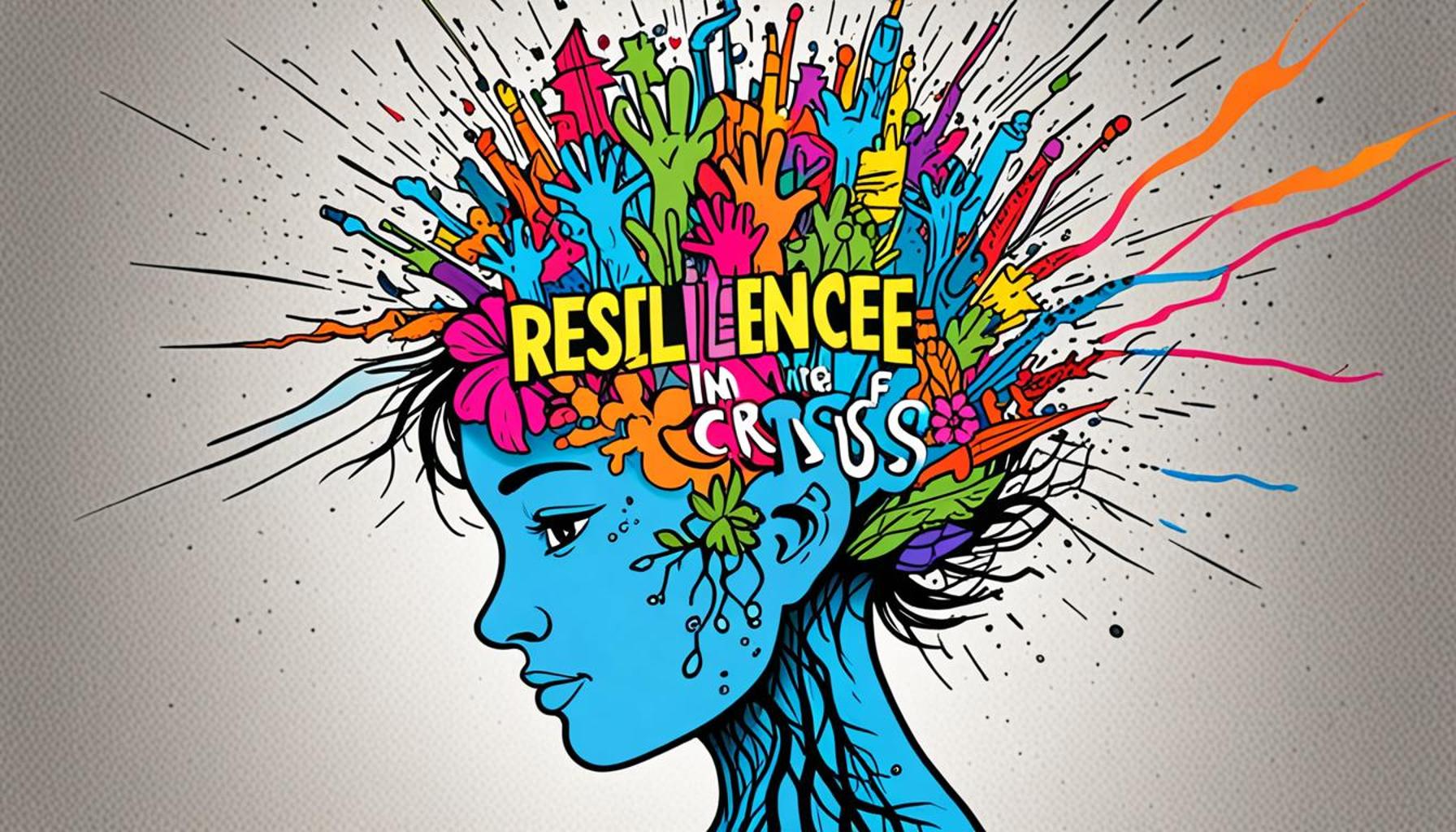Building Family Resilience: Growth Mindset Strategies to Strengthen Intergenerational Relationships

Understanding Intergenerational Relationships
In a world of rapid change, families are met with challenges that can strain their connections. It is imperative to recognize that building a strong foundation is key to nurturing strong intergenerational relationships. A family that adopts a growth mindset not only enhances its dynamics but also equips itself with the tools necessary to navigate obstacles together. This concept revolves around the idea that intelligence and abilities are not fixed traits but rather can be developed through dedication and hard work.
Research consistently indicates that families who adopt a growth mindset tend to:
- Encourage open communication: Families that foster an environment of dialogue allow for healthier discussions about feelings, ideas, and concerns. For instance, in many Nigerian households, regularly scheduled family meetings can create a space for everyone to voice their thoughts without judgment.
- Foster emotional intelligence: Emotional awareness and empathy are vital in understanding the feelings of one another, especially across generations. A grandfather might share his life lessons with grandchildren, allowing them to appreciate his experiences and feelings while providing them guidance through a contemporary lens.
- Promote problem-solving skills: Difficult situations are inevitable, but when families work together to find solutions, they reinforce their collective strength. For example, during economic hardships, families can collaboratively brainstorm business ideas that utilize their unique skills and resources.
These attributes bear immense importance for cultivating resilience across generations. In Nigeria, where traditional values often meet modern realities, family structures can significantly benefit from strategies focused on relational growth. Emphasizing the following key aspects can help families fortify their connections:
- Shared goals and values: Establishing common aspirations, whether regarding education or community service, helps unify the family and gives everyone a sense of purpose. For instance, participating in local health campaigns can instill a shared sense of responsibility among family members.
- Understanding and acceptance of each other’s perspectives: Recognizing and validating diverse viewpoints, whether due to age or personal experience, creates a more inclusive family atmosphere. This is particularly relevant as younger members of the family may have different approaches to technology and social values.
- Building a support system during difficult times: The ability to rely on one another during tough times cultivates resilience. In Nigeria, cultural practices such as communal gatherings can serve as a means for families to support each other, whether in times of mourning or celebration.
As families contend with the array of pressures today, deepening the understanding of intergenerational relationships is paramount. This article explores practical growth mindset strategies that can lead to transformative family interactions. By adopting these approaches, families can embrace change, encourage adaptability, and cultivate a more integrated unit.
In exploring these strategies, families are encouraged to discover how improved communication, greater empathy, and collaborative problem-solving can reinforce their bonds. Emphasizing relational growth not only strengthens family ties but also nurtures resilience, ensuring that all members are equipped to face future challenges with confidence and unity.

ADDITIONAL INSIGHTS: Expand your understanding here
Cultivating a Growth Mindset in Families
To foster intergenerational relationships that thrive, families must first establish a growth mindset. This cultural shift within the household encourages members to embrace challenges, learn from mistakes, and support one another in personal development. The growth mindset is based on the premise that abilities can be cultivated and improved through effort, which lays the groundwork for more resilient family dynamics.
One effective strategy for cultivating a growth mindset in families is through the practice of active learning. Families can engage in activities that demand collaboration and problem-solving skills. For instance, participating in community development projects, such as cleaning up local parks or organizing educational workshops, not only strengthens family bonds but also instills a sense of shared responsibility. In Nigeria, such initiatives can serve as an avenue for children and parents alike to engage in hands-on learning experiences, showcasing the value of teamwork and mentoring.
When families take on challenges together, they can develop a broader understanding of each other’s strengths and weaknesses. This understanding helps to shape a nurturing environment where each member feels valued. Here are several key strategies families can implement to promote a growth mindset:
- Encourage Lifelong Learning: Families should create an environment where education extends beyond school, emphasizing curiosity and discovery. Regular storytelling sessions that showcase family history and experiences can motivate younger generations to appreciate their roots while learning valuable life lessons.
- Celebrate Efforts, Not Just Achievements: Acknowledging the efforts that family members put into their tasks can foster motivation and resilience. Parents can share instances where they faced setbacks before ultimately succeeding, thus normalizing struggle as part of the journey.
- Model Resilience: Children learn by observing their parents. Demonstrating resilience in daily life—whether through managing stress or addressing conflicts—can impart valuable lessons. When parents share their challenges and problem-solving processes openly, it encourages children to adopt a similar approach.
- Create Opportunities for Decision-Making: Allowing children to take on age-appropriate responsibilities and make choices fosters autonomy. For example, empowering teens to plan family outings or manage small budgets teaches them valuable life skills while promoting trust and communication.
As families adopt these strategies, the focus shifts from traditional parenting methods based on authority to fostering a collaborative environment. This evolution is particularly vital for households in Nigeria, where community ties and familial roles often intersect. By actively embracing the principles of a growth mindset, families can strengthen their connections across generations.
The exploration of growth mindset strategies reveals that family resilience stems from the willingness to learn together, celebrate persistence, and confront challenges as a united front. Ultimately, overcoming obstacles in partnership enriches intergenerational relationships and prepares families to face the future with confidence and solidarity.
In today’s rapidly changing world, fostering family resilience is more essential than ever. Intergenerational relationships play a pivotal role in this process, and a growth mindset can significantly enhance these connections. Recognizing the importance of adapting and learning from challenges fosters a nurturing environment for all family members, bridging the gap between generations.
One important strategy for building resilience is open communication. Encouraging family members to share experiences, struggles, and successes creates a safe space for dialogue. This approach not only strengthens emotional bonds but also promotes a culture of empathy and understanding. In essence, families become collaborative teams that tackle difficulties together.
Another effective strategy involves encouraging independence while maintaining support. Allowing younger generations to make their own decisions fosters self-confidence and autonomy. In tandem, older family members can share wisdom and insights that help youth navigate these challenges, creating an atmosphere of mutual respect and learning.
Additionally, integrating shared activities into family routines can enhance relationships. Engaging in hobbies, volunteer work, or exercise together helps families bond while fostering a sense of accomplishment. These shared experiences lay the groundwork for discussions about challenges and successes, nurturing a resilient family unit adaptable to change.
The importance of cultivating a growth mindset transcends generations, as it allows families to emphasize strength in adversity and adaptability in the face of uncertainty. Through continued learning and support, families can strengthen their intergenerational ties while building resilience that lasts for years to come.
| Advantage | Description |
|---|---|
| Open Communication | Promotes a safe space for sharing experiences. |
| Encouraging Independence | Fosters self-confidence while keeping support available. |
| Shared Activities | Strengthens bonds and creates opportunities for collaboration. |
Implementing these strategies not only empowers individual family members but also nurtures a collective resilience. The commitment to strengthening intergenerational relationships through a growth mindset truly lays the foundation for a thriving family dynamic.
SEE ALSO: Click here to read another article
Embracing Failure as a Learning Opportunity
In a rapidly changing world, particularly in Nigeria, where socio-economic challenges can often lead to uncertainty, teaching families to view failure through a growth mindset lens becomes critical. Embracing failure as a natural aspect of life encourages individuals to develop resilience and adaptability. One effective approach families can employ is the failure debrief.
A failure debrief involves discussing setbacks in a safe and supportive environment. Families can gather to talk about challenges faced either collectively or individually—be it in academics, career aspirations, or personal endeavors. For instance, after a child participates in a school competition, the family can evaluate what went wrong and use it as a learning moment rather than an opportunity for reprimand. Instead of focusing solely on the outcome, members can discuss what they learned from the experience and how they plan to tackle future endeavors differently.
This process not only normalizes failure but also reinforces the idea that mistakes are stepping stones to success. Families can further enhance this practice by engaging in weekly discussions where each member shares a “failure” or challenge of the week and the lessons learned from it. This shared vulnerability helps build trust within the family unit and fosters a culture of openness and support.
The Role of Technology in Family Learning
In today’s digital age, technology can play a pivotal role in fostering a growth mindset within families. Utilizing educational platforms, online workshops, and collaborative projects through technology can spark motivation among family members. For example, families can participate together in online courses that teach resilience strategies or skills relevant to personal challenges they face.
Platforms like YouTube offer a plethora of motivational content covering topics such as goal-setting, overcoming setbacks, and personal development. Families can create a routine where they watch a video together and discuss its implications in their lives. This not only fosters learning but also creates a unique bonding experience where family members can express their thoughts and feelings.
Additionally, social media can be harnessed to create supportive communities. Families can follow pages focused on resilience and personal growth, thereby receiving regular doses of inspiration, advice, and shared experiences. Setting aside time for family discussions about content shared on social media can further encourage critical thinking and collaborative learning.
Building Community Connections
Strengthening intergenerational relationships can also extend beyond the household. Families in Nigeria can benefit from engaging with their broader communities by participating in cultural events, local workshops, or charitable initiatives. By involving extended family members and neighbors, families can create a network of support that is rich in wisdom and experience.
In many Nigerian cultures, the importance of storytelling plays a vital role in passing down knowledge and traditions. Families can schedule regular gatherings where elders share their life stories—a practice that not only strengthens bonds between generations but also imparts critical life lessons and cultural values to the younger members. This communal approach reinforces the idea of learning from both success and failure, nurturing resilience in the process.
By expanding the growth mindset beyond immediate family to the community, families cultivate a layered support system that is essential in navigating life’s challenges. This expansion fosters a shared sense of identity and belonging, strengthening intergenerational relationships rooted in collective resilience.
YOU MAY ALSO LIKE: Read read another article
Conclusion: Nurturing Resilient Families through Growth Mindset
In a world fraught with challenges, particularly in the Nigerian context, building family resilience through a growth mindset emerges as a crucial strategy for strengthening intergenerational relationships. By acknowledging failure as a vital part of the learning process, families empower each member to overcome difficulties and embrace new opportunities. The practice of conducting failure debriefs cultivates an atmosphere of trust and openness, where mistakes are seen not as shortcomings, but as valuable stepping stones toward growth.
Moreover, leveraging technology as an educational tool can further enhance family learning experiences. By engaging in webinars, online courses, and motivational content, families can foster an environment of collective learning and support. This digital approach not only enriches individual skills but also strengthens bonds through shared experiences, allowing family members to grow together.
Additionally, the importance of community connections cannot be understated. By actively participating in local events and embracing storytelling traditions, families extend their resilience network beyond the household. Such communal support systems not only bolster personal growth but also reinforce cultural values that are essential for nurturing future generations.
Ultimately, building family resilience through a growth mindset creates an enriching dynamic that transcends individual experiences. As families in Nigeria and beyond continue to foster this mindset, they not only strengthen their ties but also equip themselves to face uncertainties with confidence and unity. The journey towards resilience is an ongoing process, and with intentionality and commitment, families can cultivate a legacy of strength, adaptability, and intergenerational support.


